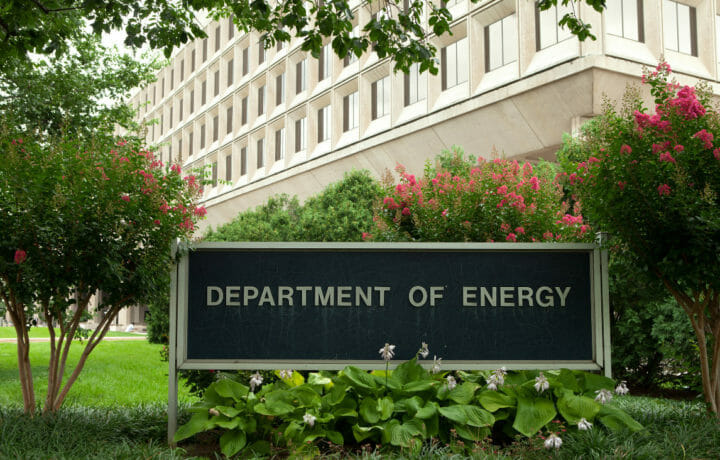Say the words “Q clearance” to anyone outside the U.S. Department of Energy (DOE) and fictional James Bond gadget-master “Q” undoubtedly comes to mind.
DOE does little to deflate that comparison; I’m sure a lot of people there secretly love it. But, like much in government, reality is far less sexy than cinema. Nothing against DOE or the important work they do, but their science-centered mission and the national laboratories they oversee mean there are a lot more Inspector Gadgets running around the place than there are James Bond-types.
Background on DOE Security Clearance Terms
That said, the obvious question remains: what on earth is a “Q clearance” (or an “L clearance,” for that matter) and why is DOE the only federal agency that calls their clearances something besides “Top Secret” or “Secret?”
Like many aspects of the security clearance process, including, most notably, the differences appealing a denial for contractors versus federal employees, the distinction arose because of the piecemeal implementation of classified information procedures during World War II and subsequent decades. The development of the atomic bomb – the primary reason why DOE exists – was one of the most important catalysts for those procedures.
So secretive was the “Manhattan Project” that a new idea took hold: vetting the backgrounds of personnel assigned to it. The designator “Q” was assigned to individuals requiring the highest level of access – apparently along with lesser designators “P” and “S” (which have since been replaced with “L”) to correspond with the abbreviation for the then-newly developed Personnel Security Questionnaire.
A decade later, the Atomic Energy Act of 1954 gave birth to the term “Restricted Data,” which became the designator for classified information pertaining to nuclear weapons and related technology. But as the terms “Top Secret” and “Secret” took hold elsewhere in government, lawmakers never saw fit to reconcile the differing terminology. Fast forward many years to the movement toward security clearance reciprocity and the differences became a sticking point. The compromise outcome was to keep the differing terminology but align the background investigation processes. Today, “Q” clearance is equivalent for reciprocity purposes to a Top Secret clearance elsewhere in government, while an “L” clearance is equivalent to a “Secret” clearance.
Submitting a FOIA Request for a DOE Q Clearance
Which brings us to the genesis of this article: a question from a ClearanceJobs reader about the FOIA process for obtaining a copy of their DOE security clearance records. Security clearance reciprocity positioned DOE to outsource the actual background investigations work to the government’s largest investigative service provider, the Defense Counterintelligence and Security Agency (DCSA), which is exactly what they did.
So, while you may work for DOE, your background investigation was conducted by the DCSA – which is where you submit a Privacy Act request (not a FOIA request) to obtain a copy of your background investigation – unless the Q clearance was based on reciprocity from another, prior employing agency’s background investigation. Here is a link to the website explaining the DCSA request process for obtaining a copy of your background investigation file.
The only caveat is that, like many agencies that contract with DCSA for background investigation services, DOE retains authority to adjudicate their own cases and conduct internal security inquiries that arise outside of the normal background investigation process. To obtain those records, a requestor must file a Privacy Act request for their security adjudication file with DOE directly, which can be done by following the instructions outlined here.
For either option, I strongly recommend electronic filing where feasible. COVID-19 backlogs continue to remain a problem in agency FOIA offices, but they are somewhat reduced by avoiding snail mail. And, to pre-emptively answer another question I used to get frequently in my law practice, no, merely filing a Privacy Act request for your own information shouldn’t raise any red flags with security officials. DOE and DCSA process countless such requests each year, and individuals are entitled to see their own information (subject to some redactions) by law.
This article is intended as general information only and should not be construed as legal advice. Although the information is believed to be accurate as of the publication date, no guarantee or warranty is offered or implied. Laws and government policies are subject to change, and the information provided herein may not provide a complete or current analysis of the topic or other pertinent considerations. Consult an attorney regarding your specific situation.




